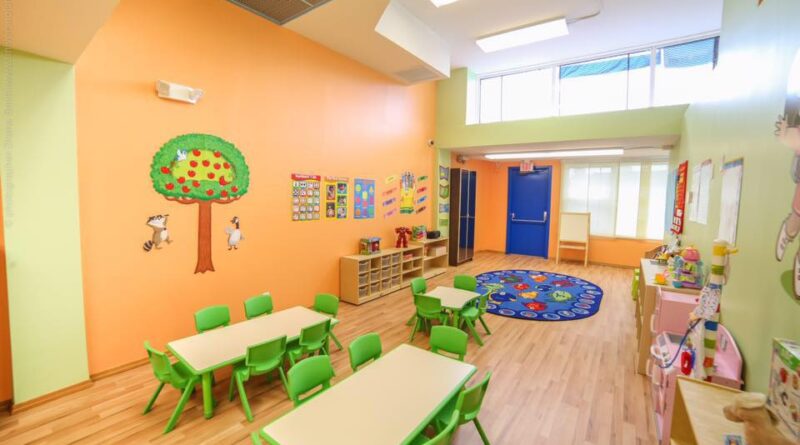Celebrating Cultural Diversity in Daycare
In today’s interconnected world, cultural diversity is not just a concept; it’s a reality that enriches our lives, especially in early childhood education. Daycares near me centers play a pivotal role in shaping young minds, and embracing cultural diversity within these environments can create a foundation of inclusivity, acceptance, and understanding. In this blog post, we will explore the importance of celebrating cultural diversity in daycare settings and provide actionable strategies for implementation.
Understanding Cultural Diversity
What Is Cultural Diversity?
Cultural diversity encompasses the variety of cultural or ethnic groups within a society. It includes differences in language, traditions, values, and worldviews. In daycare settings, recognizing and celebrating this diversity is crucial for fostering an environment where all children feel valued and understood.
Benefits of Cultural Diversity in Early Childhood Education
- Promotes Inclusivity: When children see their own cultures represented alongside others, they feel a sense of belonging.
- Enhances Social Skills: Exposure to diverse perspectives helps children develop empathy and social awareness.
- Encourages Cognitive Development: Engaging with various cultures broadens children’s understanding of the world, enhancing critical thinking and creativity.
Strategies for Celebrating Cultural Diversity in Daycare
Curriculum Development
Incorporating Diverse Perspectives
Integrate stories, songs, and activities from a wide range of cultures into the curriculum. This can include reading books from different authors or exploring music from various countries.
Cultural Themes
Consider implementing monthly themes focusing on different cultures. For example, you could dedicate February to African American history or September to Hispanic Heritage Month. This approach not only educates children but also creates anticipation for learning about new cultures.
Staff Training and Development
Cultural Competency Training
Provide staff with training on cultural sensitivity and awareness. Understanding their own biases and learning about different cultures can empower educators to create a more inclusive environment.
Diverse Hiring Practices
Aim to hire staff members who reflect the cultural diversity of the community. This representation can provide children with role models who share their backgrounds.
Parent and Community Involvement
Cultural Exchange Programs
Encourage parents to share their traditions with the best daycares in Denver community. This could involve cooking traditional meals, sharing stories from their heritage, or demonstrating cultural practices.
Community Partnerships
Collaborate with local cultural organizations to host events or workshops. These partnerships can bring authentic experiences into the daycare setting.
Activities to Promote Cultural Awareness
Celebrations and Festivals
Cultural Festivals
Organize events that celebrate various cultures through food, music, dance, and art. These festivals can be a fun way for children to learn about different traditions while fostering community spirit.
International Days
Designate specific days for children to dress in traditional attire from their heritage. This not only promotes pride in their culture but also encourages curiosity among peers.
Educational Workshops
Guest Speakers
Invite community members to share their cultural experiences with the children. Personal stories can make learning more relatable and impactful.
Hands-On Activities
Engage children in crafts or cooking sessions that reflect different cultures. For instance, making origami for Japanese culture or creating piñatas for Mexican celebrations can be both educational and enjoyable.
Creating an Inclusive Environment
Physical Space
Culturally Relevant Decor
Display artwork, posters, and materials that represent various cultures around the daycares in Lakewood. This visual representation reinforces the message of inclusivity.
Language Resources
Provide books and learning materials in multiple languages to support bilingualism and help all children feel represented.
Policy Development
Anti-Bias Policies
Establish guidelines that promote respect and understanding among diverse groups within the daycare setting.
Feedback Mechanisms
Implement ways for families to provide input on cultural practices within the daycare. Regular feedback can help ensure that all voices are heard.
Measuring Success
Assessing Children’s Development
Observation Techniques
Monitor children’s interactions with peers from diverse backgrounds. Observing how they engage can provide insights into their understanding of cultural differences.
Feedback from Parents
Gather insights from families about their children’s experiences regarding cultural activities and representation within the daycare.
Continuous Improvement
Regular Reviews of Practices
Evaluate the effectiveness of cultural diversity initiatives regularly. Are children engaging? Are parents satisfied? Use these assessments to refine your approach.
Adaptation Based on Feedback
Be open to making necessary adjustments based on observations and parent feedback. Flexibility is key to creating an inclusive environment.
Conclusion
Celebrating cultural diversity in the best daycares in Colorado Springs settings is not just beneficial; it’s essential for nurturing well-rounded individuals who respect and appreciate differences in others. By implementing these strategies—developing an inclusive curriculum, training staff effectively, involving parents and communities, organizing engaging activities, creating an inclusive environment, and measuring success—we can foster a sense of belonging for every child.



